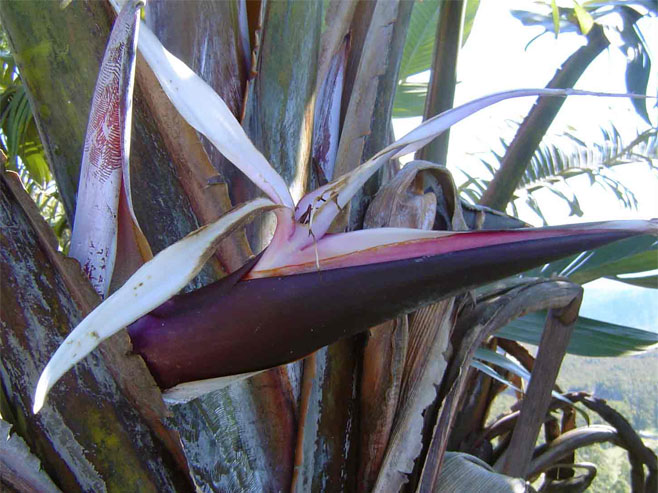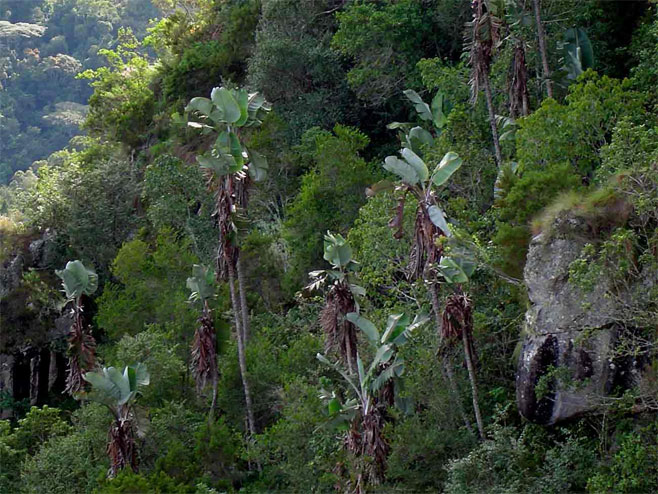Strelitzia caudata (Mountain strelitzia)
Bergwildepiesang [Afrikaans] Life
> eukaryotes >
Archaeoplastida >
Chloroplastida
>
Charophyta > Streptophytina > Plantae (land plants)
> Tracheophyta (vascular plants) > Euphyllophyta > Lignophyta (woody plants)
> Spermatophyta (seed plants) > Angiospermae (flowering
plants) > Monocotyledons > Order: Zingiberales
> Family: Strelitziaceae > Genus:
Strelitzia
 |
|
Strelitzia caudata, Castle Beacon, Vumba,
Zimbabwe. [photo Bart Wursten ©,
Flora
of Zimbabwe] |
 |
|
Strelitzia caudata, Castleburn Cliffs,
Vumba, Zimbabwe. [photo Bart Wursten ©,
Flora
of Zimbabwe] |
Identification
A large tree-like strelitzia, growing to 6 m
tall.
Of the three tree-like strelitzias found in
southern Africa, Strelitzia caudata is distinguished by
having blue, not white petals (thus distinguishing is from
Strelitzia alba) and by having
a simple flowerhead, not compound (one flowerhead arising from
another) as in Strelitzia
nicolai. Note that it is the arrow-like structure of a
Strelitzia flower that consists of two petals (with style and
stamens running between) while the three large, erect, showy
petal-like structures are actually sepals - these sepals are white
in all three species of tree-like strelitzias. There is a third
petal that is inconspicuous.
The fruit is a 3-lobed, dehiscent woody
capsule. The seed is black with an orange, woolly aril.
Distribution and habitat
Native to Limpopo, Mpumalanga, Swaziland and
the Eastern Highlands of Zimbabwe. Grows in cool, moist, montane forests,
in rocky places rich in leaf litter. For instance, grows in forest
on the southern face of the Soutpansberg in Limpopo.
Phenology
Flowers and fruits at any time of year.
Links
References
- Palgrave, K.C. and Palgrave, M.C. 2002. Trees of Southern Africa.
3rd Edition. Struik Publishers, Cape Town.
- Palmer, E. and Pitman, N. 1972. Trees of Southern Africa covering all
known indigenous species in the Republic of South Africa, South-West Africa,
Botswana, Lesotho and Swaziland. Volume 1. A.A. Balkema, Cape
Town.
Text by Hamish Robertson |
